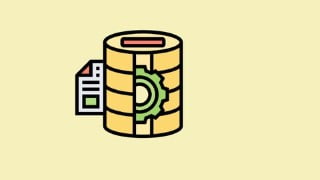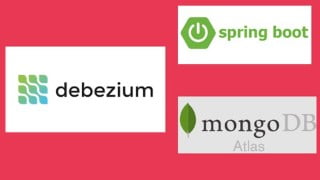Microsoft SQL for beginners : Perform CRUD Operations
Learn the fundamentals of SQL and how to interact with relational databases. This course is perfect for beginners looking to dive into Microsoft SQL (T-SQL) and start their journey as a data analyst. Gain hands-on experience in creating databases, tables, and views, inserting and updating data, and performing backups and restores. Discover the power of SQL in retrieving, manipulating, and managing data. Start your SQL journey today and unlock endless possibilities in the world of data analysis.
What you’ll learn
- Setup SQL Server Database Server
- Connect to SQL Server using SSMS
- Restore sample database
- Create a database
- Create a table in the database
- Insert data into the table
- Create views
- Update the data
- Read the data
- Backup database
- Delete the data
- Truncate table
- Delete table
- Delete database
- Restore database
Show moreShow less
Transact-SQL is Microsoft’s and Sybase’s proprietary extension to the SQL used to interact with relational databases.
What is SQL?
SQL stands for Structured Query Language
SQL lets you access and manipulate databases
SQL became a standard of the American National Standards Institute (ANSI) in 1986, and of the International Organization for Standardization (ISO) in 1987
What Can SQL do?
SQL can execute queries against a database
SQL can retrieve data from a database
SQL can insert records in a database
SQL can update records in a database
SQL can delete records from a database
SQL can create new databases
SQL can create new tables in a database
SQL can create stored procedures in a database
SQL can create views in a database
SQL can set permissions on tables, procedures, and views
SQL is a Standard – BUT….
Although SQL is an ANSI/ISO standard, there are different versions of the SQL language.
However, to be compliant with the ANSI standard, they all support at least the major commands (such as SELECT, UPDATE, DELETE, INSERT, WHERE) in a similar manner.
Note: Most of the SQL database programs also have their own proprietary extensions in addition to the SQL standard!
This course you will learn how to create a database, create a table in the database, insert data into the table, update the data, read the data, delete the data, and then delete the table. You will create views ,backup and restore database.
Who this course is for:
- Beginners to Microsoft SQL (T-SQL)
- Beginner Data Analyst
User Reviews
Be the first to review “Microsoft SQL for beginners : Perform CRUD Operations”
You must be logged in to post a review.







There are no reviews yet.